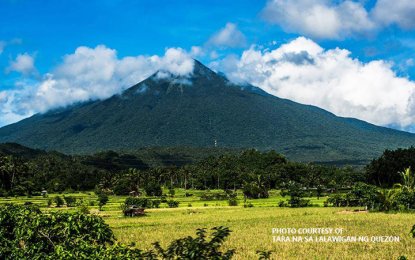News
No permit, no entry to Mt. Banahaw
MANILA — People must secure permits to enter Mount Banahaw, a popular Holy Week destination, especially for those who consider the active volcano sacred.
“We’re already requiring people to first get their permits from our office,” said Salud Pangan, protected area superintendent of the
10,900-hectare Mt. Banahaw-San Cristobal Protected Landscape (MBSCPL).
The regulation is among measures adopted by the local government–Barangay Kinabuhayan, Dolores town, Quezon province–to protect Mt. Banahaw from further environmental decay due to human activities.
The Mts. Banahaw-San Cristobal Protected Landscape straddles Quezon and Laguna provinces.
“The importance of the Banahaw and San Cristobal mountains as major watersheds in the provinces of Laguna and Quezon, including their
educational, aesthetic, biodiversity, and cultural and religious importance, behooves the state to undertake steps for their protection and preservation,” reads Republic Act 9847 of 2009.
The regulated entry to Mt. Banahaw would stay until February 2019, said Pangan.
The Department of Environment and Natural Resources (DENR) said previous moratoriums on entry to Mt. Banahaw had helped increase the number of birds and wildlife species in the area.
Mt. Banahaw is among the country’s famous mountains due to its natural beauty.
Certain sects also visit Mt. Banahaw to perform religious rituals.
Joeboy Gelera, senior environmental management specialist at the DENR Biodiversity Management Bureau (BMB), said people must
coordinate with the Landscape office about their plans to enter Mt. Banahaw.
“Authorities there will brief them on what’s allowed and disallowed in Banahaw,” he said. Even the number of people allowed in the area is limited.
The BMB said the Mt. Banahaw-San Cristobal Protected Landscape has 358 tree species, 19 vine species, 15 palm species, 39 fern species, 15 grass species, 42 fungi species, and 17 shrub species. The bureau said about 56 flora species there are endemic.
The landscape’s fauna, the BMB said, includes 246 bird species, 38 reptile species, 62 mammal species, 43 amphibian species, and 193 insect species.






















